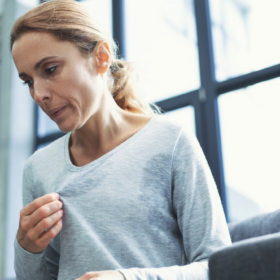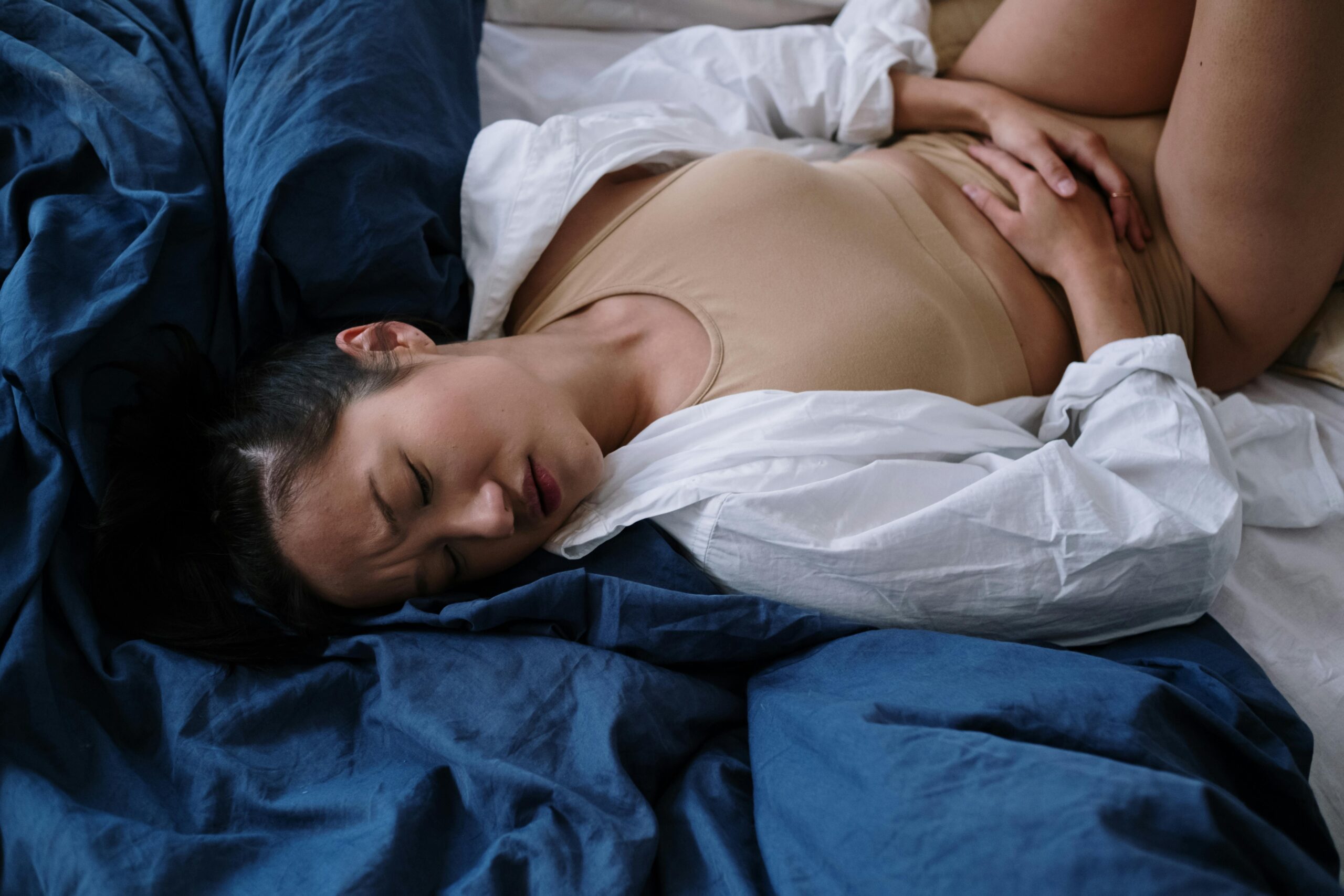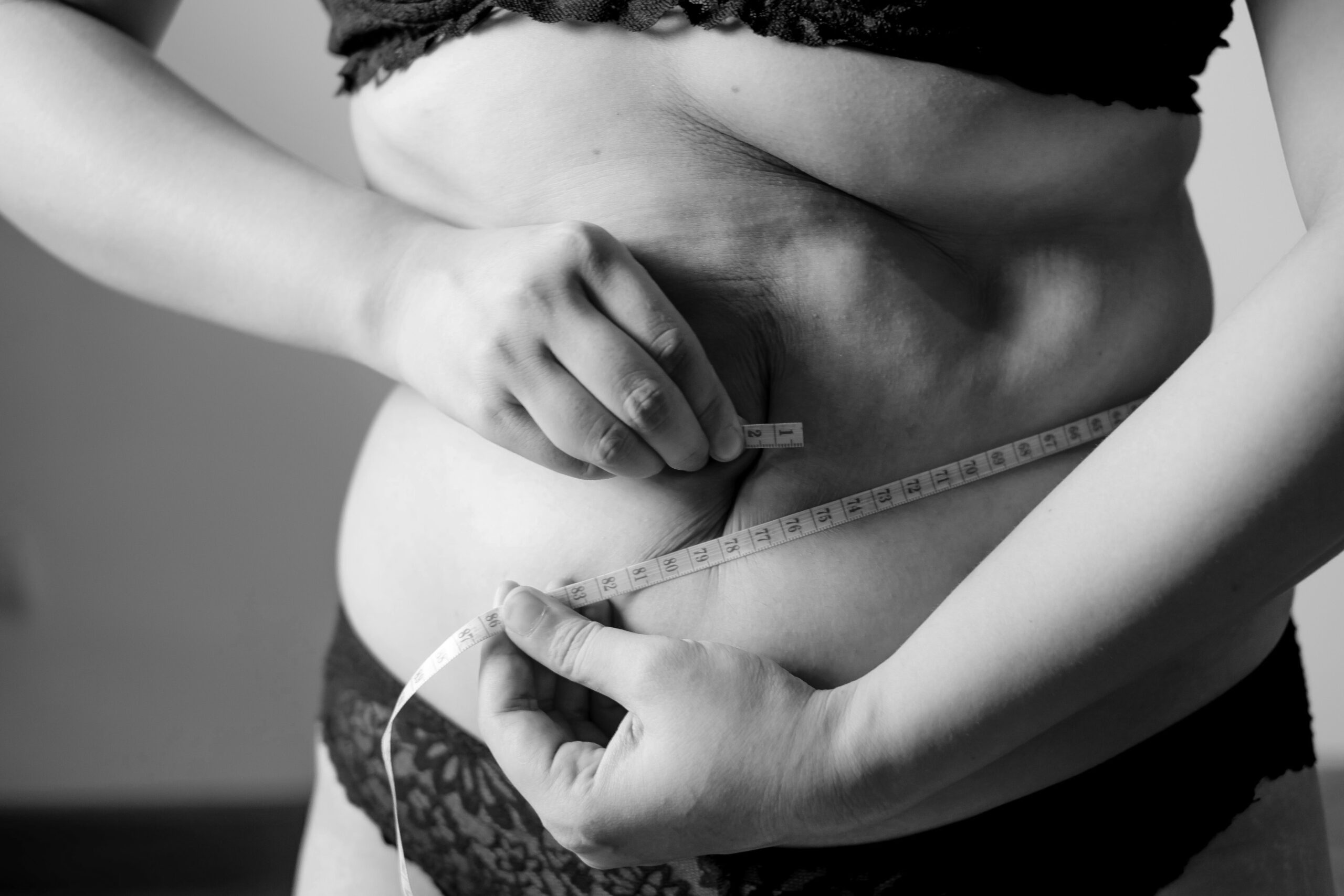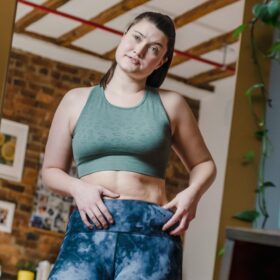
The lowdown on menopause and anxiety
In this article
What's the lowdown?
Menopause typically occurs between the ages of 45 and 55, with an average age of 51
36% of women surveyed by the British Menopause Society said the menopause had an impact on their social life
Cutting down on alcohol, eating a healthy, calcium-rich diet, and quitting smoking can help with the symptoms of menopause
Cognitive behavioural therapy (CBT) can be a great alternative to medication in the treatment of anxiety
Hormonal replacement therapy can help manage many symptoms of menopause including anxiety
If you’re experiencing anxiety whilst going through the menopause, you’re not alone. We look at the link between the menopause and anxiety, and the treatment options available to you.
When you consider the menopause is something over half the world’s population will go through, it’s astounding to think we are prepped with so little information. And when there are so many symptoms that can impact every aspect of life, it’s time to get the facts straight.
The menopause typically occurs between the ages of 45 and 55, with an averga eage of 51 in the UK, although it can start earlier. And perimenopause – which includes the time before your periods stop as menopausal symptoms start, can last for months, or even years.
Is there a link between menopause and anxiety?
The menopause can cause a whole host of symptoms, including both physical and mental. The most commonly known physical symptom is perhaps hot flushes, with 79% of women surveyed by the British Menopause Society experiencing hot flushes as a symptom of the menopause. 70% suffered from night sweats and 50% noted an impact on their sex lives.
Symptoms of menopause anxiety
Can the menopause cause anxiety? Yes – and it’s not the only mental health symptom. Symptoms of menopause anxiety include:
- low mood
- brain fog (problems concentrating and difficulty with memory)
- low self-esteem
- lack of confidence
20% of women surveyed had difficulty with their memory and concentration, and 36% of said the menopause had an impact on their social life.
So whilst this all might sound a little unnerving, there are treatments available.
What are the treatment options for menopause anxiety?
Lifestyle changes
Eating well and exercising regularly are easy changes that can have a positive impact as you go through the menopause. A healthy diet rich in calcium will help support bone health, and cutting down on tea, coffee and alcohol may reduce the triggers of hot flushes.
Keeping to a regular sleep schedule to help stay well rested, and introducing yoga or mindfulness may help in calming down anxious thoughts. It is also recommended to not smoke and to limit your alcohol intake to 14 units a week.
Anxiety around physical symptoms of the menopause can have a knock-on effect on self confidence and self esteem. Tackling the physical symptoms of the menopause can help boost confidence and overall wellbeing.
Support can also come through nutritional supplements.
Therapy
Cognitive behavioural therapy (CBT) can be a great option to run alongside other treatments or as an alternative to medication. CBT is a talking therapy that you can often self-refer to through the NHS without the need to see your doctor. It can help with feelings of anxiety and low mood by breaking negative thought patterns and looking for practical solutions you can implement in your everyday life.
Talking therapy or counselling can help you tackle specific negative thought patterns and help you overcome unhelpful ways of thinking. But in addition to this, a natter with like-minded individuals going through the same thing you are can work wonders for your mental health. Knowing you’re not going through things alone and laughing over shared experiences can be an invaluable help.
Hormone Replacement Therapy (HRT)
During the menopause, levels of oestrogen drop and bring about both physical and psychological symptoms. Oestrogen can be replaced with hormone replacement therapy (HRT). For anyone with a womb, HRT should contain both oestrogen and progestogen, as oestrogen alone can cause the womb lining to grow.
HRT can take many forms, including tablets, patches, implants, gels and sprays which will need to be prescribed by your doctor. There is also the Mirena, a progestogen releasing coil, so there are many options to choose from. Anyone without a womb, or those who have the hormonal Mirena coil, can just use an oestrogen replacement.
HRT can come with its own side effects which can include fluid retention, breast tenderness, bloating, headaches and mood swings. However, these often improve with time, and so it is advised to continue with treatment for three months before seeing your GP.
HRT also comes with small risks but for most people, the benefits of HRT usually outweigh the risks and your doctor should be able to discuss these with you.
We have many reviews from the Lowdown community about HRT which can help you choose your options.
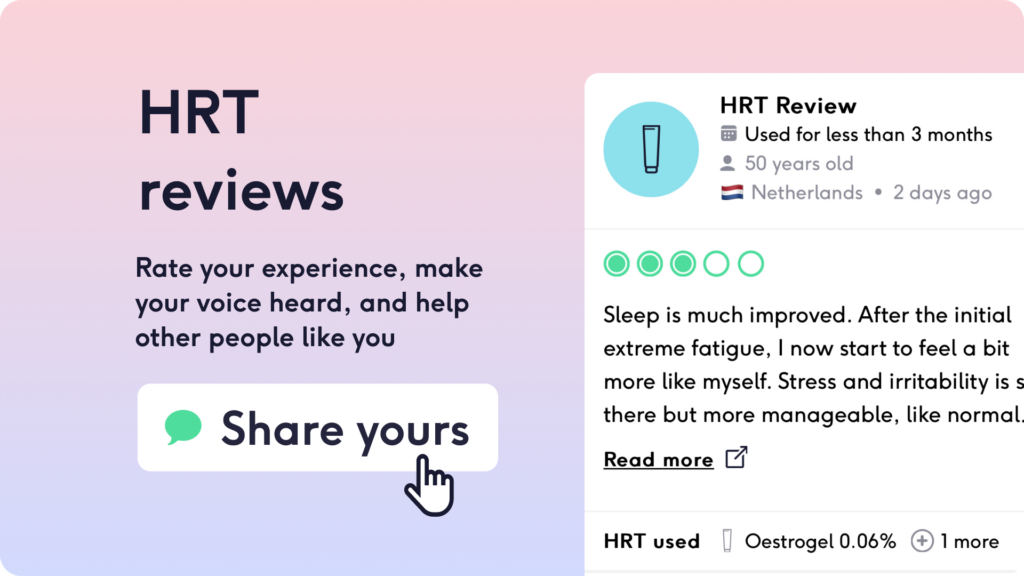
Complementary therapies
For many people going through the menopause, HRT can be a life changing solution. But according to Women’s Health Concern, a survey found that 95% of women said ‘they would try alternative therapies before HRT because they think they are more natural and because they are worried about the health risks of HRT.’
So with that in mind, what are the alternatives to HRT for managing menopausal symptoms?
Acupuncture
A study looking at the effects of acupuncture on the vasomotor symptoms of menopause (that means hot flushes and night sweats) concluded that acupuncture treatments were linked to a reduction in these symptoms compared to no acupuncture. Not only was the reduction significant, but the effects continued 6 months after the end of treatment.
Acupuncture has also been found to offer positive effects in the treatment of anxiety in those with generalised anxiety disorder (GAD). More studies are needed to prove a beneficial link between acupuncture and menopausal anxiety. But the findings so far are promising.
How to seek help for menopausal anxiety
Looking again at the survey from the British Menopause Society, 50% of women aged 45-65 who experienced menopause between 2006 and 2016, did not consult a healthcare professional about their menopause symptoms. Let’s change that!
If you are suffering with anxiety – or any other symptom due to menopause – speak to someone who can help. Talk to a healthcare professional, or get advice on HRT options with one of our brilliant women’s health doctors here at The Lowdown. You don’t need to suffer alone.
If you’re nervous about discussing your symptoms, why not keep a symptom diary? It can help remind you what you want to say, as well as being helpful for noticing any patterns in your symptoms.
Our medical review process
This article has been medically reviewed for factual and up to date information by a Lowdown doctor.



